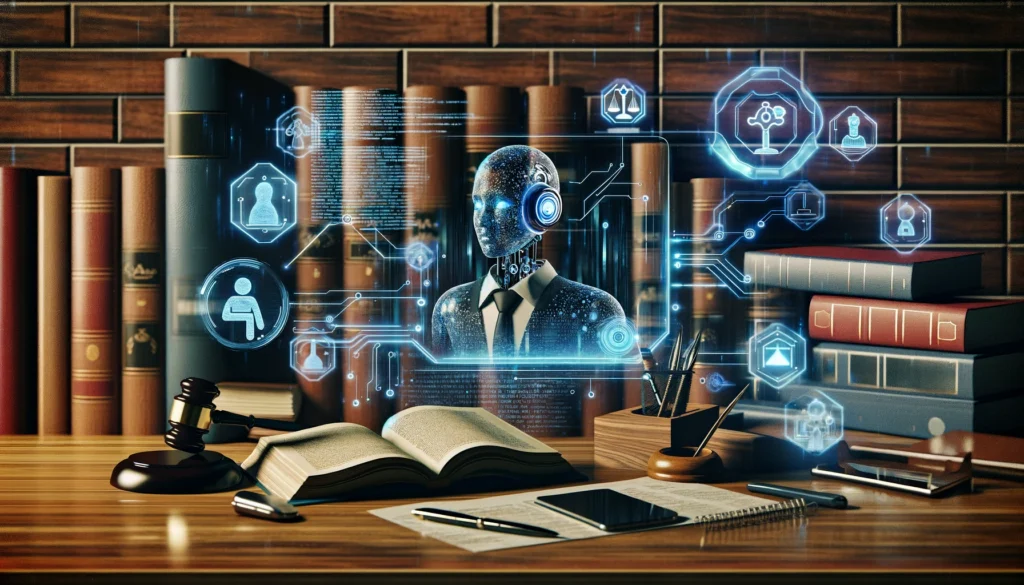
Unlocking Efficiency: The Role of ChatGPT in Estate and Gift Tax Preparation
The complexities of estate and gift tax returns are well-known in the legal and financial realms. Navigating through intricate tax codes, compliance requirements, and voluminous paperwork can be daunting for many paralegals. However, the advent of AI technologies like ChatGPT offers a transformative approach to simplifying these tasks, bringing unprecedented efficiency and accuracy.
ChatGPT possesses capabilities that can streamline various aspects of estate and gift tax preparation, making it an invaluable tool for paralegals. From intelligent data intake to document drafting, this AI can handle numerous functions with ease, thus enabling legal professionals to focus on higher-level tasks.
Streamlining Initial Data Intake: Intelligent Client Communication
Effective communication with clients to gather preliminary information is crucial. Crafting accurate and comprehensive prompts is essential to ensure that all necessary data is collected at the initial stage. ChatGPT can assist paralegals in this process by generating intelligent and tailored prompts.
Example prompts include:
- “Please provide the full names, dates of birth, and Social Security numbers of all beneficiaries.”
- “Could you list all significant assets, including real estate, bank accounts, and stocks, held by the decedent?”
- “Detail any gifts made in the last three years, including the date, value, and recipient.”
To ensure data accuracy and completeness, ChatGPT can cross-reference provided information against known requirements. For instance, it can identify missing data points or flag potential inconsistencies, allowing paralegals to promptly address these issues. Furthermore, ChatGPT’s ability to handle back-and-forth communication efficiently reduces the time spent on clarifying details, ensuring a smoother intake process.
Also read:
Navigating Legalese: Leveraging GPT for Legal Research and Analysis
Understanding and interpreting complex tax laws and regulations is another area where ChatGPT excels. By leveraging optimized prompts, paralegals can utilize this AI to quickly summarize and analyze pertinent legal information.
Consider the following prompts:
- “Summarize the key provisions of the latest estate tax regulation changes.”
- “Compare recent IRS updates on gift tax exclusions with prior year’s guidelines.”
- “Provide a detailed analysis of precedent cases relevant to marital deduction claims.”
ChatGPT’s ability to process vast amounts of legal text allows it to distill essential information, highlighting critical points and nuances. Additionally, it can compare legislative updates and precedents, ensuring that paralegals are working with the most current and relevant information. This functionality not only speeds up legal research but also enhances the accuracy and thoroughness of the analysis, ultimately improving the quality of legal advice provided to clients.
Also read:
Drafting Documents: Automating Routine Correspondence and Forms
Automating the drafting of routine correspondence and forms is one of the most practical applications of ChatGPT in estate and gift tax preparation. By using specific prompts, paralegals can generate standard emails, letters, and even complex tax forms efficiently.
For instance, sample prompts for generating client correspondence might include:
- “Draft an email to a client detailing the next steps for their estate tax return submission.”
- “Compose a letter informing a beneficiary about the receipt of their inheritance.”
When it comes to preparing estate and gift tax forms, prompts such as:
- “Fill out Form 709 based on the provided gift details.”
- “Generate a draft of Form 706 using the decedent’s asset information.”
These allow ChatGPT to accurately complete the necessary documentation. Furthermore, this AI can review completed forms for errors or omissions, ensuring consistency and accuracy. By automating these routine tasks, paralegals can allocate their time to more complex cases, thereby increasing overall productivity and improving client service.
Also read:
Accuracy through Automation: Cross-Referencing and Data Validation
Ensuring the accuracy of figures and identifying inconsistencies within tax documents are critical to the integrity of estate and gift tax preparation. ChatGPT can automate this process through intelligent prompts and methods.
Effective prompts for cross-referencing might include:
- “Verify the asset values listed in Schedule A with the executor’s report.”
- “Check for discrepancies between the listed gifts and the donor’s tax records.”
Utilizing these prompts, ChatGPT can systematically compare different data points, highlighting any discrepancies or anomalies. Furthermore, it can validate data across multiple documents, ensuring consistency and reducing the risk of errors. By integrating these checks into the workflow, paralegals can enhance the reliability of the submitted tax returns.
Also read:
Enhancing Client Reports: Crafting Summaries and Recommendations
Creating clear and concise reports for clients is a vital aspect of estate and gift tax preparation. ChatGPT can assist in generating executive summaries and tax planning recommendations with tailored prompts.
For example:
- “Summarize the client’s estate tax liabilities and exemptions.”
- “Draft recommendations for minimizing future gift tax obligations based on the client’s financial profile.”
These prompts enable ChatGPT to translate complex tax information into accessible content, making it easier for clients to understand their position and the advice provided. This enhances client communication and facilitates informed decision-making.
Also read:
Future-Proofing: Ethical Considerations and Best Practices
As we integrate AI into tax preparation, it is essential to address ethical considerations and best practices. Data confidentiality and the ethical use of AI are paramount.
To ensure compliance and maintain professional standards, paralegals should adhere to guidelines that protect client data and maintain transparency about AI usage. Regular audits and reviews of AI-generated outputs can help maintain accuracy and reliability, fostering trust in this advanced technology.
Also read:
Final Thoughts: Maximizing Productivity and Quality with ChatGPT
The integration of ChatGPT into estate and gift tax preparation workflows offers immense potential to enhance productivity and quality. By automating routine tasks, optimizing data intake, and ensuring accuracy through intelligent cross-referencing, paralegals can deliver superior service. Embracing AI tools like ChatGPT is a strategic move towards future-proofing legal practices, achieving greater efficiency, and maintaining high standards of professionalism.


